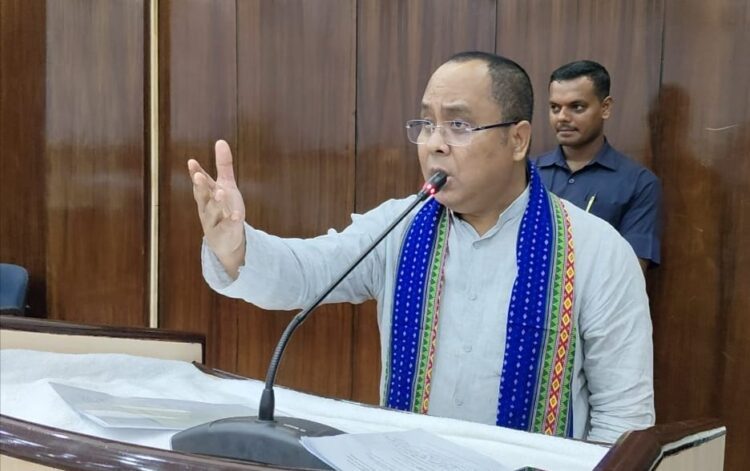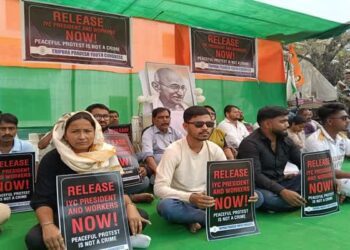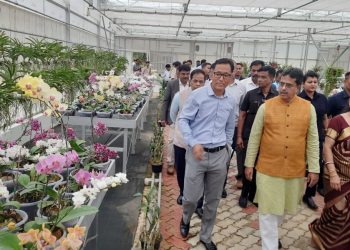Agartala, May 22:
Tripura Forest Minister Animesh Debbarma has voiced strong opposition to further highway and road widening projects across the state, warning that any expansion beyond the current double-lane structure could significantly endanger Tripura’s already limited forest cover.
Speaking at the International Day for Biological Diversity 2025 celebration and a voluntary blood donation camp organized by the Tripura SCATFORM Project and the Tripura Biodiversity Board at Pragna Bhavan on Thursday, Debbarma stressed the need to balance development with environmental preservation.
“Tripura’s highways have already been upgraded to double lanes, and that should be sufficient. Any further widening will result in avoidable deforestation, especially in a geographically small state like ours,” Debbarma said.
He highlighted Tripura’s rich biodiversity and its potential to become an oxygen-surplus state if its forests are preserved. The Minister revealed plans to write to the Prime Minister, urging a reconsideration of infrastructure development models applied to the state. “Our development model must be unique—one that protects our forests rather than depletes them,” he said.
Debbarma proposed alternative solutions such as building flyovers and tunnels in hilly regions, which would prevent surface-level deforestation. “Tunnel routes are a sustainable alternative to cutting down forest land,” he noted.
The Minister also disclosed that Chaitanya Murti, the Principal Chief Conservator of Forests (PCCF), is under pressure from both the state Chief Secretary and the central government to approve forest land for development projects. However, Debbarma confirmed that these proposals are under strict scrutiny.
Tripura once had over 62% of its land under forest cover, but recent data from the Government of India shows a reduction of around 100 square kilometers. The state government is now intensifying afforestation efforts and drone-based forest surveys to reverse the decline.
The event was attended by top forest officials and representatives from several externally aided environmental projects, reflecting the growing urgency to safeguard Tripura’s natural heritage.


















